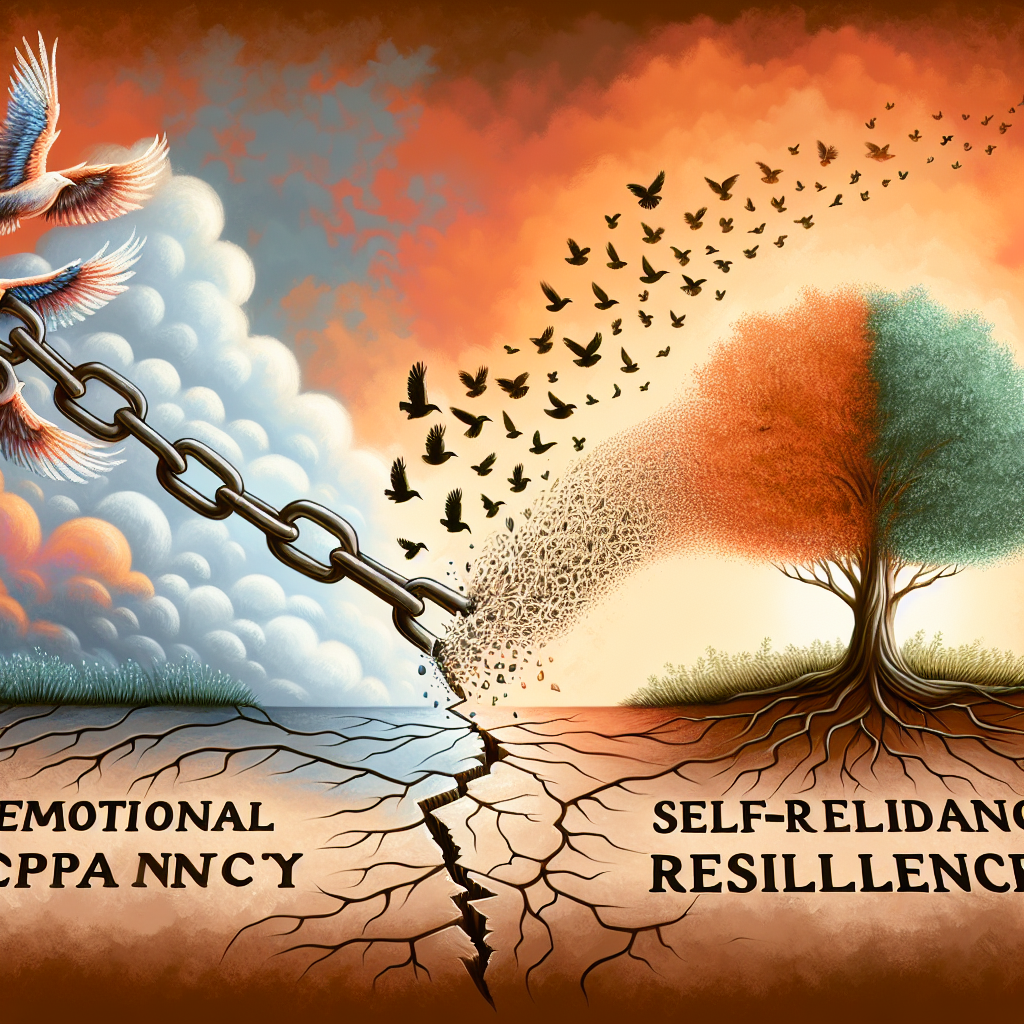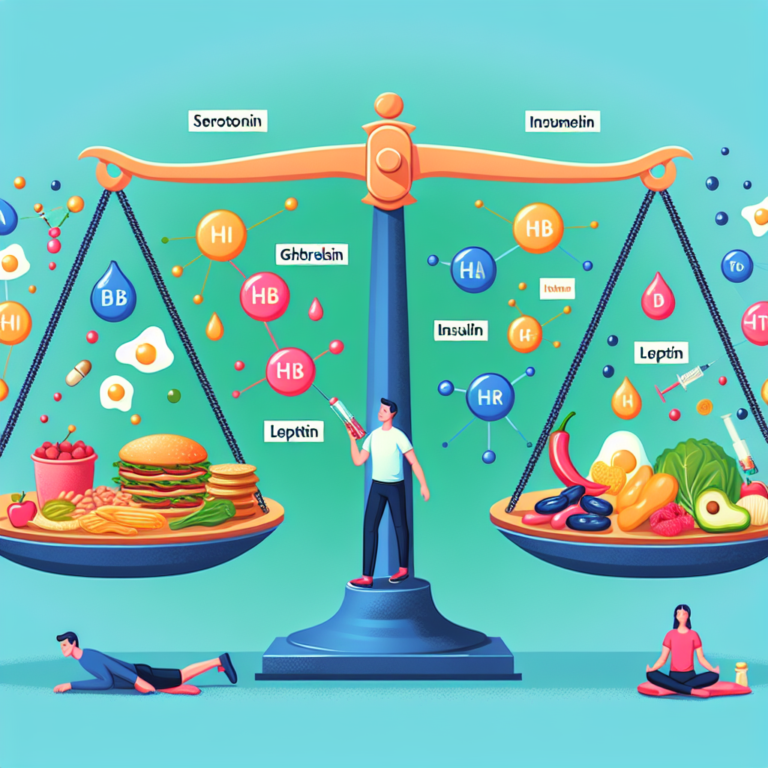
Introduction
Imagine waking up each day feeling empowered and self-sufficient, free from the clutches of emotional dependency. The ability to navigate our emotional landscape without relying excessively on others not only enhances our mental health but also transforms our relationships into partnerships rather than dependencies. In an increasingly interconnected world, where emotional ties can often blur our boundaries, transforming emotional dependency into self-reliance and resilience is essential for personal growth and holistic well-being.
This article will delve into the nature of emotional dependency, explore its implications, and present essential tips for fostering self-reliance and resilience. Through relatable case studies, charts, and actionable insights, we will create a roadmap that encourages you to embark on your journey toward emotional independence and strength.
Understanding Emotional Dependency
What is Emotional Dependency?
Emotional dependency is characterized by an overwhelming reliance on another person for emotional support, validation, or happiness. This dependency often leads to feelings of insecurity, anxiety, and an inability to cope with life’s challenges without the presence or approval of others.
The Importance of Self-Reliance
Self-reliance refers to the ability to rely on one’s own capabilities, judgment, and resources. Cultivating self-reliance is essential for fostering resilience—our ability to bounce back from stress and adversity. When we are self-reliant, we are more likely to pursue our goals and maintain healthier relationships.
Case Study: Sarah’s Journey to Independence
Sarah was in a long-term relationship where her partner became her emotional crutch. Whenever faced with challenges, she turned to him for comfort and validation. When their relationship ended abruptly, Sarah found herself lost, unable to cope without her partner.
Analysis: Sarah’s story illuminates how emotional dependency can render individuals vulnerable. By recognizing their emotional patterns, individuals like Sarah can begin to understand the importance of fostering self-reliance.
Recognizing the Signs of Emotional Dependency
Symptoms to Watch For
- Constant Need for Reassurance: Frequently seeking validation from others.
- Fear of Abandonment: Experiencing intense anxiety when separated from loved ones.
- Compromising Self-Identity: Altering personal beliefs or behaviors to please others.
- Difficulty Making Decisions: Lacking confidence in personal judgment without external input.
Chart: Emotional vs. Healthy Dependency
| Emotional Dependency | Healthy Dependency |
|---|---|
| Seeking constant reassurance | Open communication |
| Living in fear of rejection | Ability to discuss feelings |
| Compromising self-identity | Caring about others but staying true to self |
| Inability to handle emotions | Emotional regulation skills |
Tips for Transforming Emotional Dependency into Self-Reliance
1. Develop Emotional Awareness
Emotional awareness is the foundation of self-regulation. Identify your emotions and understand their origins. Journaling can be a powerful tool here.
Actionable Insight
- Start a daily emotional journal, noting your feelings and triggers to enhance self-awareness.
2. Set Healthy Boundaries
Setting boundaries is essential for maintaining your own emotional space.
Actionable Insight
- Practice saying ‘no’ when necessary and communicate your needs clearly to others.
3. Build a Strong Support Network
Shift your focus from reliance on one person to creating a broad support network of friends, family, and professionals.
Actionable Insight
- Join community groups or classes where you can meet new people and cultivate meaningful relationships.
4. Practice Self-Care
Engaging in self-care activities promotes emotional health.
Actionable Insight
- Dedicate time each week to activities that you love—be it hiking, painting, or meditating.
5. Engage in Positive Self-Talk
Challenge negative thoughts that stem from emotional dependency. Positive affirmations can aid in this process.
Actionable Insight
- Create a list of affirmations that resonate with you. Repeat them daily to foster a positive mindset.
6. Explore Therapy or Counseling
Professional guidance can be invaluable in navigating emotional dependency.
Actionable Insight
- Consider engaging in cognitive-behavioral therapy (CBT) to reshape thoughts and behaviors.
Case Study: Mark’s Road to Resilience
Mark struggled with severe emotional dependency on his friends. Recognizing this pattern, he began journaling and practicing self-care. Over time, he learned to find joy in solitary activities, strengthening his self-reliance.
Analysis: Mark’s experience demonstrates how proactive steps can lead to significant emotional growth and independence.
Creating a Resilient Mindset
Understanding Resilience
Resilience is the ability to adapt to stress and adversity. It is the mental reservoir of strength that helps people handle stress and overcome challenges.
Key Traits of Resilient Individuals
- Optimism
- Flexibility
- Focus on Solutions
- Emotional Regulation
Table: Traits of Resilience vs. Indicators of Dependency
| Resilience Traits | Indicators of Emotional Dependency |
|---|---|
| Optimism | Fearfulness |
| Adaptability | Rigidity |
| Problem-solving focus | Blame-shifting |
| Social connection | Isolation |
7. Learn Problem-Solving Skills
Adopt a problem-solving mindset rather than seeking immediate support from others.
Actionable Insight
- When faced with a challenge, outline possible solutions before reaching out for help.
8. Embrace Change
Change is a part of life. Embracing change rather than resisting it builds resilience.
Actionable Insight
- Welcome new experiences and challenges to foster growth and adaptability.
9. Create Meaningful Goals
Setting and achieving personal goals fosters a sense of purpose.
Actionable Insight
- Use the SMART criteria (Specific, Measurable, Achievable, Relevant, Time-bound) to create actionable goals.
10. Practice Gratitude
Gratitude helps shift focus from what you lack to the positives in your life.
Actionable Insight
- Keep a gratitude journal, documenting three things you are grateful for each day.
Conclusion
Transforming emotional dependency into self-reliance and resilience is not a one-time event but an ongoing journey. By adopting the tips mentioned throughout this article, you can empower yourself, enhance your emotional health, and strengthen your relationships. Remember, self-reliance provides a deeper connection to your authentic self, while resilience equips you to navigate life’s challenges with grace.
As you embark on this transformative journey, take small steps, celebrate your progress, and remain committed to your emotional growth. It’s time to embrace your independence and cultivate a life of fulfillment!
FAQs
1. What are some signs that I am emotionally dependent on someone?
Signs include a constant need for reassurance, difficulty making decisions without input from others, and anxiety over separation.
2. How can I start fostering self-reliance?
Begin by developing emotional awareness, setting boundaries, and engaging in self-care practices.
3. Is it normal to feel dependent on someone emotionally?
Yes, it’s normal to seek support from loved ones, but it becomes a concern when the dependency hinders your personal growth.
4. How long will it take to transform emotional dependency?
The timeframe varies for each person, depending on individual circumstances, commitment to change, and willingness to engage in self-reflection.
5. Can therapy help with emotional dependency?
Yes, therapy can provide valuable insights, coping strategies, and support as you navigate the journey toward self-reliance.
By following the outlined strategies and acknowledging the importance of emotional independence, you can begin to reshape your emotional landscape into one that is resilient, self-sufficient, and fulfilling. Embrace the journey of transforming emotional dependency and discover the profound strength that lies within you.


















Heya i am for the first time here. I came across this board and I find It really useful & it helped me out much. I hope to give something back and aid others like you aided me.
You are a very clever individual!
Wow, amazing blog layout! How long have you ever been blogging for? you make running a blog glance easy. The whole look of your web site is wonderful, as smartly as the content!
Great write-up, I am normal visitor of one?¦s blog, maintain up the nice operate, and It’s going to be a regular visitor for a lengthy time.
Merely wanna comment that you have a very decent site, I enjoy the design and style it actually stands out.
I just like the helpful information you provide in your articles. I’ll bookmark your weblog and take a look at again right here regularly. I’m relatively certain I will be told many new stuff proper right here! Good luck for the next!
Hey! Do you use Twitter? I’d like to follow you if that would be ok. I’m definitely enjoying your blog and look forward to new posts.
This is the right blog for anyone who wants to find out about this topic. You realize so much its almost hard to argue with you (not that I actually would want…HaHa). You definitely put a new spin on a topic thats been written about for years. Great stuff, just great!
When I originally commented I clicked the -Notify me when new comments are added- checkbox and now each time a comment is added I get four emails with the same comment. Is there any way you can remove me from that service? Thanks!
Only a smiling visitor here to share the love (:, btw outstanding layout. “Competition is a painful thing, but it produces great results.” by Jerry Flint.
Hi there, i read your blog from time to time and i own a similar one and i was just curious if you get a lot of spam feedback? If so how do you protect against it, any plugin or anything you can advise? I get so much lately it’s driving me insane so any assistance is very much appreciated.
Lovely just what I was looking for.Thanks to the author for taking his time on this one.
Today, while I was at work, my cousin stole my iphone and tested to see if it can survive a twenty five foot drop, just so she can be a youtube sensation. My apple ipad is now destroyed and she has 83 views. I know this is entirely off topic but I had to share it with someone!
I like this blog very much so much wonderful information.
I have been absent for some time, but now I remember why I used to love this site. Thank you, I will try and check back more often. How frequently you update your web site?
Hi, Neat post. There is a problem along with your website in web explorer, would test this… IE nonetheless is the marketplace leader and a huge section of other people will pass over your magnificent writing due to this problem.
You should take part in a contest for one of the best blogs on the web. I will recommend this site!
Spot on with this write-up, I truly assume this website wants rather more consideration. I’ll most likely be again to learn far more, thanks for that info.
I truly appreciate this post. I’ve been looking everywhere for this! Thank goodness I found it on Bing. You have made my day! Thx again!
I’m really inspired along with your writing abilities as well as with the layout for your weblog. Is that this a paid topic or did you customize it your self? Either way keep up the excellent high quality writing, it is rare to peer a great blog like this one today..
Hi there! This is my 1st comment here so I just wanted to give a quick shout out and tell you I genuinely enjoy reading your posts. Can you suggest any other blogs/websites/forums that cover the same topics? Thanks a lot!
Hi there, just changed into aware of your weblog through Google, and found that it’s really informative. I am gonna watch out for brussels. I will be grateful if you happen to continue this in future. A lot of other folks will probably be benefited out of your writing. Cheers!
You completed certain fine points there. I did a search on the theme and found mainly persons will agree with your blog.
Thanks , I’ve recently been looking for info about this subject for ages and yours is the best I have discovered so far. But, what about the bottom line? Are you sure about the source?
Wonderful website. A lot of helpful information here. I am sending it to several friends ans also sharing in delicious. And of course, thanks in your sweat!
Hello there! This is kind of off topic but I need some advice from an established blog. Is it very difficult to set up your own blog? I’m not very techincal but I can figure things out pretty quick. I’m thinking about creating my own but I’m not sure where to start. Do you have any points or suggestions? Cheers
Heya i’m for the first time here. I found this board and I find It really useful & it helped me out a lot. I hope to give something back and aid others like you helped me.
You are my breathing in, I have few web logs and infrequently run out from to post .
I see something genuinely interesting about your blog so I saved to bookmarks.
I have not checked in here for a while because I thought it was getting boring, but the last few posts are great quality so I guess I will add you back to my daily bloglist. You deserve it my friend 🙂
Keep up the excellent work, I read few articles on this site and I believe that your blog is really interesting and contains lots of good info .
Hi there! This post couldn’t be written any better! Reading through this post reminds me of my previous room mate! He always kept talking about this. I will forward this article to him. Pretty sure he will have a good read. Thank you for sharing!
Hi, I think your site might be having browser compatibility issues. When I look at your website in Firefox, it looks fine but when opening in Internet Explorer, it has some overlapping. I just wanted to give you a quick heads up! Other then that, awesome blog!
You are my intake, I possess few blogs and very sporadically run out from to brand : (.
You are my inspiration , I have few blogs and very sporadically run out from to brand.
I’m still learning from you, while I’m improving myself. I certainly love reading all that is posted on your website.Keep the tips coming. I enjoyed it!
Perfectly pent articles, Really enjoyed reading through.
Deference to author, some superb information .
Thanks for another informative website. The place else could I get that kind of info written in such a perfect manner? I have a challenge that I’m simply now working on, and I’ve been on the look out for such information.
It’s appropriate time to make some plans for the future and it’s time to be happy. I have read this post and if I could I want to suggest you few interesting things or suggestions. Maybe you can write next articles referring to this article. I desire to read even more things about it!
I haven¦t checked in here for some time because I thought it was getting boring, but the last several posts are good quality so I guess I¦ll add you back to my everyday bloglist. You deserve it my friend 🙂
I was just seeking this info for some time. After six hours of continuous Googleing, finally I got it in your web site. I wonder what’s the lack of Google strategy that do not rank this type of informative sites in top of the list. Normally the top web sites are full of garbage.
I enjoy the efforts you have put in this, thankyou for all the great articles.
fantastic post, very informative. I wonder why the other experts of this sector don’t notice this. You must continue your writing. I’m confident, you have a huge readers’ base already!
Wow! This could be one particular of the most helpful blogs We have ever arrive across on this subject. Basically Magnificent. I am also an expert in this topic so I can understand your effort.
Hello! I could have sworn I’ve been to this blog before but after browsing through some of the post I realized it’s new to me. Anyways, I’m definitely happy I found it and I’ll be book-marking and checking back frequently!
Woh I like your posts, saved to fav! .
I love the efforts you have put in this, regards for all the great content.
Great ?V I should definitely pronounce, impressed with your website. I had no trouble navigating through all tabs as well as related information ended up being truly easy to do to access. I recently found what I hoped for before you know it in the least. Quite unusual. Is likely to appreciate it for those who add forums or anything, website theme . a tones way for your customer to communicate. Nice task..
Everything is very open and very clear explanation of issues. was truly information. Your website is very useful. Thanks for sharing.